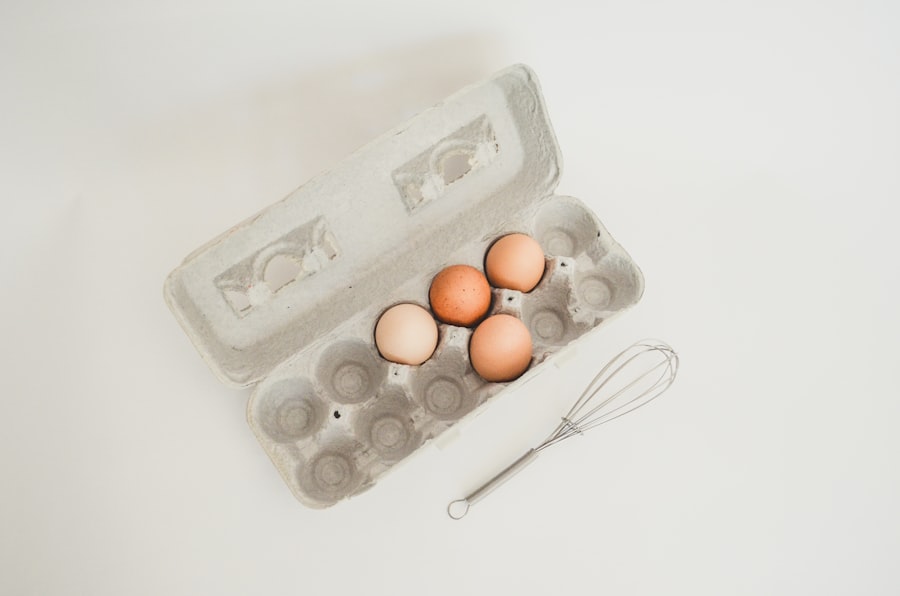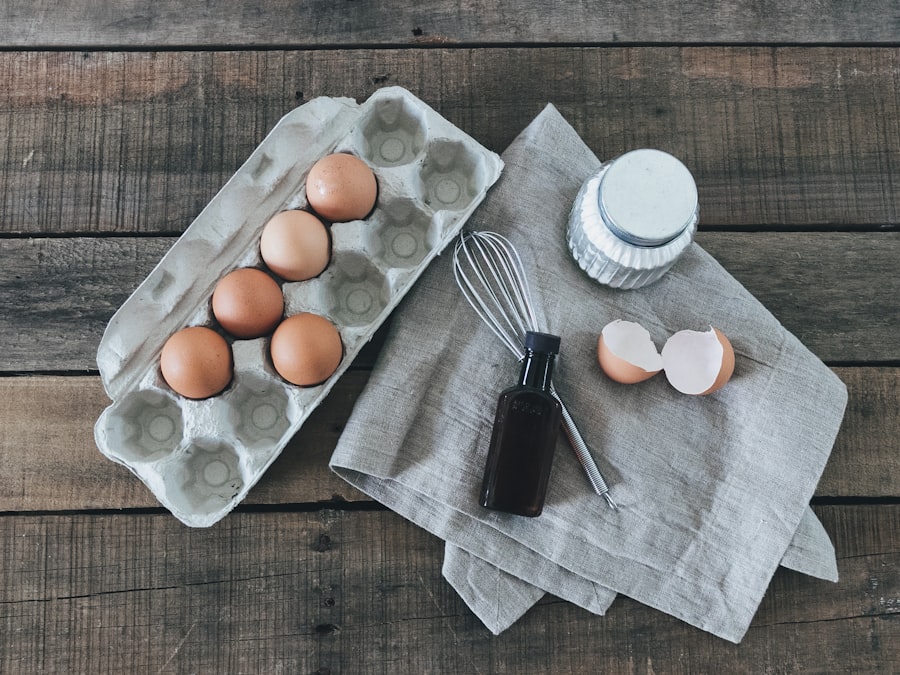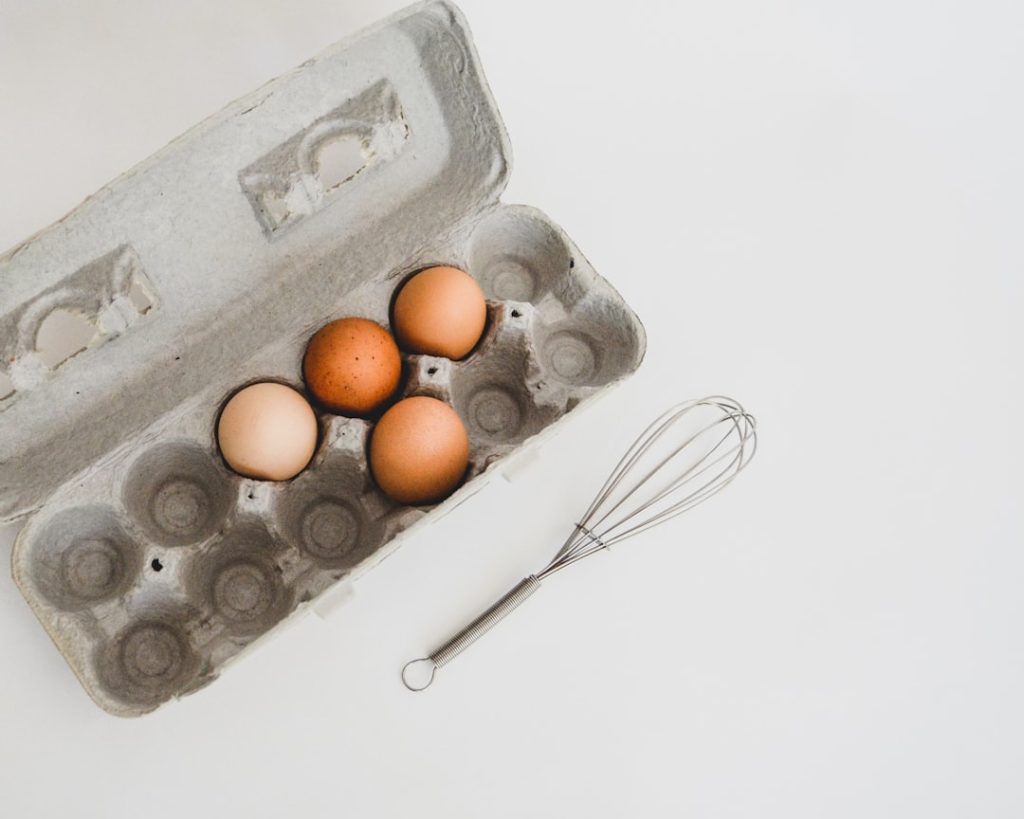Proper egg collection is crucial for maintaining egg quality and freshness. Clean, comfortable nesting boxes are essential for hens to lay eggs. Regular inspection and cleaning of these boxes prevent contamination.
Gentle handling during collection avoids shell damage. Frequent collection prevents eggs from remaining in nesting boxes for extended periods, which can decrease quality. Collecting eggs promptly after laying is vital to prevent dirt accumulation and damage.
Careful handling during collection minimizes the risk of cracks or breakages. Establishing a consistent daily collection routine ensures no eggs are overlooked. Adhering to these practices helps maintain egg quality and freshness.
Proper egg collection techniques contribute to the overall health and productivity of the flock. Clean eggs require less processing and have a longer shelf life. Regular collection also allows for monitoring of egg production and hen health.
Implementing these methods can lead to improved egg quality, reduced waste, and increased efficiency in egg production operations.
Table of Contents
- 1 Storage Tips
- 2 Cleaning and Washing
- 3 Rotation System
- 4 Temperature Control
- 5 Checking for Freshness
- 6 Using the Eggs
- 7 FAQs
- 7.1 What is the best way to keep fresh eggs from chickens?
- 7.2 How long can fresh eggs from chickens be kept in the refrigerator?
- 7.3 Should fresh eggs from chickens be washed before storing?
- 7.4 What is the best way to store fresh eggs from chickens if refrigeration is not available?
- 7.5 How can you tell if fresh eggs from chickens are still good to eat?
Key Takeaways
- Proper egg collection involves handling the eggs gently to avoid cracking and ensuring they are clean and free from any debris.
- Store eggs in their original carton in the coldest part of the refrigerator to maintain freshness and prevent absorption of strong odors.
- When cleaning and washing eggs, use warm water and a mild detergent, and dry them thoroughly to prevent bacteria from entering through the shell.
- Implement a rotation system to use the oldest eggs first and ensure freshness, by placing new eggs at the back of the carton.
- Maintain temperature control by keeping the refrigerator at 40°F or below to prevent bacterial growth and maintain egg quality.
- Check for freshness by performing the float test or by examining the egg white and yolk for any signs of spoilage.
- Use eggs in a variety of dishes such as omelets, baked goods, and salads to make the most of their nutritional benefits and delicious flavor.
Storage Tips
Choose the Right Storage Location
Once you have collected your eggs, it’s essential to store them in a cool and dry place, such as a refrigerator or a cool pantry. This helps to slow down the aging process of the eggs and prevents them from spoiling too quickly.
Protect Eggs from Odors and Damage
It’s also important to store the eggs in their original carton or in an egg storage container to protect them from absorbing any strong odors from other foods in the refrigerator. Another important storage tip is to store the eggs with the pointed end down. This helps to keep the air cell at the top of the egg, which can help to maintain its freshness and quality.
Avoid Washing Eggs Before Storage
It’s also important to avoid washing the eggs before storing them, as this can remove the protective coating on the shells and make them more susceptible to bacteria and spoilage.
By following these storage tips, you can help ensure that your eggs stay fresh and delicious for as long as possible.
Cleaning and Washing

When it comes to cleaning and washing eggs, it’s important to do so carefully and properly to maintain their quality and safety. One of the most important aspects of cleaning and washing eggs is to only do so if absolutely necessary. In most cases, eggs do not need to be washed, as they have a natural protective coating on their shells that helps to keep out bacteria and dirt.
However, if an egg is particularly dirty or soiled, it can be gently washed with warm water and a mild detergent. If you do need to wash an egg, it’s important to do so carefully and gently to avoid damaging the protective coating on the shell. It’s also important to dry the washed egg thoroughly before storing it, as any moisture left on the shell can increase the risk of bacteria growth and spoilage.
Additionally, it’s important to use clean and sanitized equipment when washing eggs to prevent any contamination. By following these cleaning and washing practices, you can help ensure that your eggs remain safe and of the highest quality.
Rotation System
Implementing a rotation system for your eggs is crucial for maintaining their freshness and quality. One effective method is using the “first in, first out” approach, where you use the oldest eggs first before moving on to the newer ones. This ensures that none of your eggs go bad before they are used, as older eggs are more likely to spoil faster than fresher ones.
Another method is marking the date of collection on each egg with a pencil or marker, so you can easily keep track of which ones need to be used first. Another effective rotation system is organizing your egg storage by placing newer eggs at the back of the carton or container, while older ones are kept at the front. This way, you can easily grab the oldest eggs first when reaching for them in your refrigerator or pantry.
By implementing a rotation system for your eggs, you can ensure that none of them go to waste and that you always use the freshest ones first.
Temperature Control
Maintaining proper temperature control is essential for preserving the freshness and quality of your eggs. Ideally, eggs should be stored at a consistent temperature of around 45°F (7°C) in order to slow down their aging process and prevent spoilage. It’s important to store your eggs in a refrigerator rather than at room temperature, as this helps to maintain a cool environment that keeps them fresh for longer.
It’s also important to avoid temperature fluctuations, as this can cause condensation on the eggshells, which can lead to bacterial growth and spoilage. Additionally, it’s important to store your eggs away from any strong-smelling foods in your refrigerator, as they can absorb odors easily. By maintaining proper temperature control for your eggs, you can ensure that they stay fresh and delicious for as long as possible.
Checking for Freshness

The Water Test
One effective method is performing the water test, where you place an egg in a bowl of water. If it sinks and lays flat on its side, it’s fresh; if it stands upright or floats, it’s not fresh and should be discarded.
Using Your Sense of Smell
Another method is using your sense of smell – fresh eggs should have no odor, while spoiled ones will have a distinct unpleasant smell.
Visual Inspection
You can also check for freshness by cracking an egg open onto a plate – fresh eggs will have a firm yolk and thick whites, while older ones will have runny whites and a flatter yolk. By regularly checking for freshness using these methods, you can ensure that you only use safe and high-quality eggs in your cooking.
Using the Eggs
Once you have collected, stored, and checked for freshness, it’s time to put your eggs to good use! Eggs are incredibly versatile and can be used in a wide variety of dishes, from breakfast classics like omelets and scrambled eggs to baked goods like cakes and cookies. They can also be used as a binding agent in meatloaf or as a coating for fried foods.
Eggs are also a great source of protein and essential nutrients like vitamin D and B12, making them a healthy addition to any meal. Whether you’re making a simple breakfast or an elaborate dinner, there are countless ways to incorporate eggs into your cooking. By using your fresh, high-quality eggs in your recipes, you can enjoy delicious and nutritious meals that are sure to impress.
If you’re interested in learning more about the incubation period for goose eggs, check out this article on Poultry Wizard. It provides valuable information for anyone looking to breed geese and hatch their eggs.
FAQs
What is the best way to keep fresh eggs from chickens?
The best way to keep fresh eggs from chickens is to store them unwashed in the refrigerator.
How long can fresh eggs from chickens be kept in the refrigerator?
Fresh eggs from chickens can be kept in the refrigerator for up to 3-4 weeks.
Should fresh eggs from chickens be washed before storing?
It is best to not wash fresh eggs from chickens before storing them, as washing can remove the protective coating on the eggs and make them more susceptible to bacteria.
What is the best way to store fresh eggs from chickens if refrigeration is not available?
If refrigeration is not available, the best way to store fresh eggs from chickens is in a cool, dry place with a consistent temperature, such as a cellar or pantry.
How can you tell if fresh eggs from chickens are still good to eat?
To check if fresh eggs from chickens are still good to eat, you can perform the float test. Place the egg in a bowl of water – if it sinks and lays flat on its side, it is still fresh. If it stands upright or floats, it is no longer fresh and should be discarded.
Meet Walter, the feathered-friend fanatic of Florida! Nestled in the sunshine state, Walter struts through life with his feathered companions, clucking his way to happiness. With a coop that’s fancier than a five-star hotel, he’s the Don Juan of the chicken world. When he’s not teaching his hens to do the cha-cha, you’ll find him in a heated debate with his prized rooster, Sir Clucks-a-Lot. Walter’s poultry passion is no yolk; he’s the sunny-side-up guy you never knew you needed in your flock of friends!







